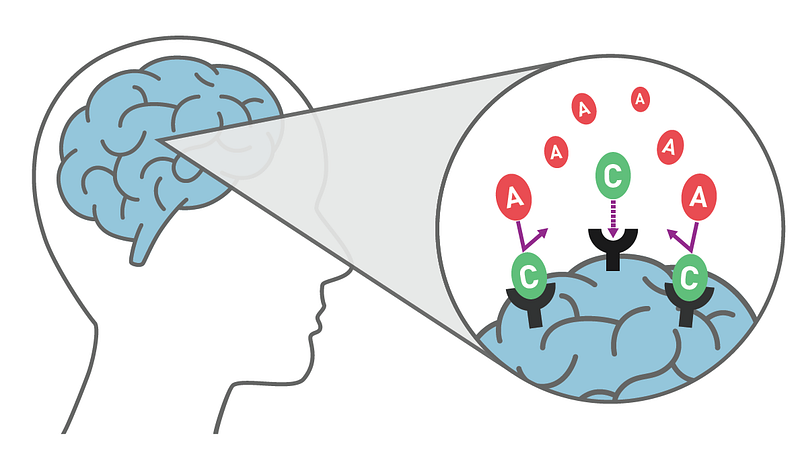Is Your Morning Coffee Beneficial or Harmful? Unpacking the Myths
Written on
The Science Behind Coffee Consumption
Many of us hear conflicting information about the advantages and drawbacks of coffee daily. What does contemporary research reveal about our beloved beverage?

Caffeine, a prevalent psychoactive stimulant, is widely consumed around the globe. It's common for many to kickstart their day with a cup of this brain-stimulating drink. For some, coffee is an essential morning ritual, often humorously expressed with phrases like, "Do not engage with me before my coffee."
While some may be addicted to caffeine, others, including myself, appreciate the rich aroma and diverse flavors coffee offers. With countless coffee variations available, it's clear that this beverage is integral to numerous cultures. Much like the internet, coffee has become a staple in our everyday lives. Consequently, health professionals and researchers are keen to understand how coffee affects our well-being.
Research Models on Coffee Effects
Three primary models are utilized to examine the implications of coffee and caffeine.
- In vitro studies focus on treating cell cultures with caffeine, offering insights into its cellular mechanisms. Although informative, these simplified systems often fall short of addressing complex questions related to coffee consumption.
- In vivo studies involve administering caffeine to animal subjects, but these models also have limitations regarding their complexity.
- Human studies are considered the most comprehensive method for determining the broader implications of coffee on health. However, the individual preferences for coffee preparation—such as the addition of milk and sugar—can complicate these investigations.
Do Current Studies Validate My Coffee Habit?
Conducting human studies is resource-intensive, and participant reliability can be an issue. These investigations often necessitate the recruitment of numerous individuals who must accurately complete extensive questionnaires. Additionally, large-scale studies require the collection and analysis of various clinical parameters.
The multifaceted nature of coffee consumption can obscure research results, making it challenging to reach definitive conclusions. Nevertheless, dedicated scientists rigorously analyze existing literature using advanced statistical techniques.
Caffeine: The Imposter Molecule
The caffeine molecule mimics adenosine, a natural signaling molecule in our bodies involved in energy storage and cellular communication. Neurons, the brain's nerve cells, contain specific receptors for adenosine, primarily located in the basal ganglia, a region crucial for motor control and regulating our sleep-wake cycles.
Think of these receptors as unique locks. When adenosine binds to its receptor, it triggers a response that typically slows neuron activity, making us feel tired as the day progresses. Caffeine, however, competes with adenosine for these receptors, blocking it and preventing the usual calming signals, allowing us to remain alert and awake.

Caffeine's Effects on Anxiety and Sleep
Caffeine can trigger sleep disturbances in some individuals and exacerbate anxiety in others. The pituitary gland, which helps regulate our body's stress response, may misinterpret the increased brain activity following caffeine consumption as a threat. This can lead to the release of adrenaline, resulting in heightened heart rates and elevated blood pressure—reactions that can be problematic for those with anxiety disorders.
Withdrawal Symptoms
For many, the absence of caffeine can lead to unpleasant withdrawal symptoms, akin to those experienced by individuals discontinuing other stimulants. As the body adapts to regular caffeine intake, it may increase the number of adenosine receptors, making individuals more sensitive to its effects in the absence of caffeine. Withdrawal can result in headaches, irritability, dizziness, and fatigue.

Coffee and Overall Health
A recent comprehensive review published in the New England Journal of Medicine analyzed 95 studies examining coffee's health effects. Surprisingly, many findings indicated potential benefits associated with coffee consumption. Specifically, consuming up to six filtered cups of coffee daily showed no adverse effects on cardiovascular health, while three to five cups were linked to a slight reduction in heart disease and stroke risk.
However, it's essential to note that this research does not advocate for coffee consumption as a preventive measure for diseases. It suggests that, for adults who are neither pregnant nor have specific health concerns, moderate coffee intake can be part of a balanced lifestyle.
While causation cannot be definitively established, we can take comfort in knowing that our morning coffee is not a significant health risk. So, why not take a moment to prepare a warm cup? Breathe in the rich aroma, savor the flavors, and appreciate the caffeine energizing your mind and body.
Chapter 2 Title
The first video titled "Is Your MORNING COFFEE Causing Stomach Discomfort and Sleep Troubles?" delves into the potential issues linked to morning coffee consumption.
The second video, "Why do you not have to delay your morning cup of coffee?" discusses the timing and impacts of coffee consumption.